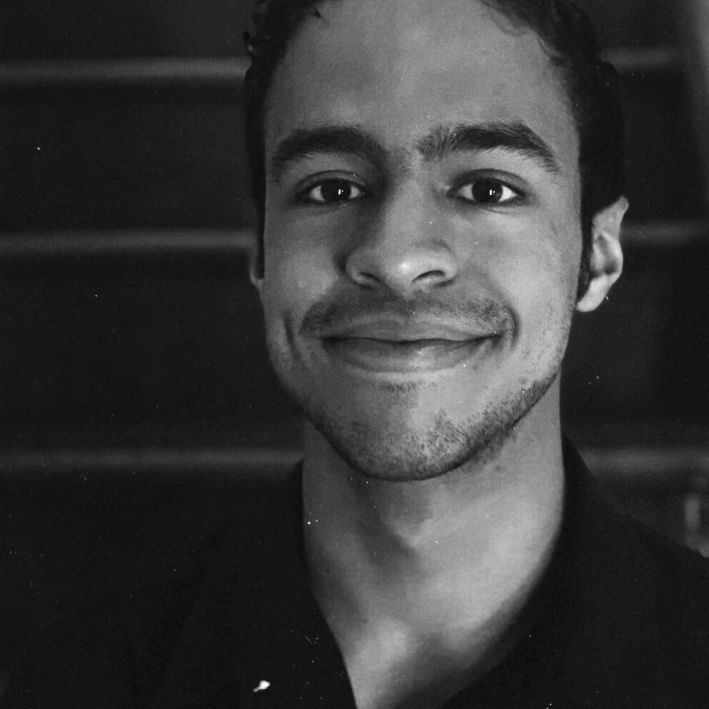My ADHD Isn't a Lack of Discipline: An Interview with Marc Almodovar
The life coach discusses his diagnosis and thoughts on healing.
Written by Lauren O'Shaughnessy

A Google images search for “mental illness” produces some predictable scenes — people crouched in corners clutching their heads in anguish, anatomical brains surrounded by chemical compounds, silhouettes of sufferers gazing out windows in search of someone who understands.
The sentiment is clear: mental disorders bring isolation and fear into the lives of those affected. But the visualization doesn’t resonate. People battling mental disorders don’t want to be shrouded in darkness, they want their stories listened to and their insecurities addressed. They want faces, relatable ones, attached to an often faceless movement.
In this Q&A series, we help sufferers emerge from their figurative corners, by letting them describe
their thoughts, feelings and experiences in their own words. And in doing so, diversify a conversation that is often formulaic and misleading.
Tell us about yourself — who are you, where do you live, what do you like.
Hi! I’m Marc Almodovar. I’m a life and wellness coach who helps individuals with ADHD and anxiety overcome their limiting beliefs. I live in Bergenfield, NJ and being outdoors in nature is one of my favorite things to do.
Have you ever been diagnosed with a condition? How long did it take? What barriers did you face?
At the age of 16, I was diagnosed with inattentive ADHD, severe depression and high levels of anxiety. I had a mind that frequently wandered off in school, had a low opinion of who I was, and felt very alone at the time.
What coping tools help you manage your condition?
For me, getting help was huge. Going to therapy, receiving guidance from life coaches and developing a mindfulness practice has gone a long way. Mindfulness has taught me to be a little more at ease in my busy life, focus during difficult tasks, and calm my anxiety. My daily 10 minute practice has really done a lot.
What stigma or cultural misconceptions have affected, or still affect, your recovery?
This idea that ADHD “isn’t real.” It’s very real, brain scan studies have shown substantial differences in the ADHD brain. Given the wealth of evidence, the National Institute of Mental Health recognizes that ADHD is a real condition and can be seriously harmful when not managed. Being told that ADHD “isn’t real” and just a “lack of discipline” from non-experts made me feel like my suffering was invalid, which is an awful way for anyone to feel.
In your opinion, what’s wrong with the current state of mental health care?
I think the main problem with mental health care is how our society, especially men, perceive it. We tend to look at seeking help as a sign of weakness, when in actuality, it’s a sign of courage and strength. After I dedicated my social media usage to ADHD support, I started a Facebook group called “ADHD Men’s Support Group” due to the overwhelming number of men messaging me saying that they felt shy talking about their struggles until I opened up about mine. We need to know that seeking help will only make the quality of our lives better and make us stronger, as a result.
You’re an outspoken ADHD advocate. What do people often get wrong about the condition?
One thing people get wrong about the condition is that it’s just an “inability to focus.” ADHD, when not managed properly, can manifest in poor organizational skills, frequently losing important things, showing up late to important events such as work and school, losing jobs, losing relationships, and a whole lot more.
We also have this trait called “hyperfocus” where we can go above and beyond for things we’re passionate about. It’s arguably one of the gifts of an ADHD brain. For example, Steve Jobs (who had ADHD) was passionate about technology and Justin Timberlake (also ADHD) has a passion for entertaining.
What lessons have you learned since you started publicly advocating?
I’ve learned that sharing your story and struggles can really impact someone’s life for the better. The amount of people thanking me for going public about this serious condition has been really overwhelming, and it inspired me to contribute to a book with some classmates of mine from my coaching school, titled “Our Transformative Journey: A Gift of Healing to the World.” I really want to show folks with ADHD that we can be great and thrive like anyone else.
What advice would you give to someone reading this right now?
My advice to someone reading this right now would be to know that no matter how untrue it may seem, you are so not alone. I know its hard to believe, but with the right tools and help (therapy, life coaches, doctors, etc) you can heal. Self transformation is possible. There’s another side to your story, and there are people out there willing to help you get there.
You can keep up with Marc on Instagram, Facebook or his website www.wellnesswithmarc.com.
About the author
Lauren is the editorial director and cofounder at the Made of Millions Foundation. She has been a part of the team since its launch in 2016. She has been open about her personal struggles with Generalized Anxiety Disorder and social phobia. You can follow her on Instagram at www.instagram.com/internet_lauren.
Support our work
We’re on a mission to change how the world perceives mental health.



















